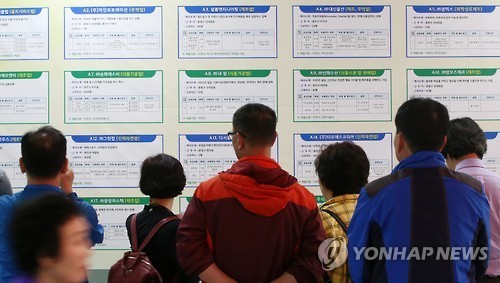Three out of 10 job seekers in South Korea think their appearance hurts their job prospects, with women being more conscious about it than men, a survey showed Tuesday.
According to a multiple-choice survey of 872 job seekers by job search engine Saramin, 31.5 percent of respondents said that they have felt disadvantaged due to their looks while seeking a job.
 |
(Yonhap) |
The survey suggested that Korean women (38.4 percent) were more prone to feel frustrated by this than men (26.4 percent).
Those surveyed felt their appearance negatively affected their job prospects when employers’ questions focused on good-looking applicants in interviews (38.5 percent) and when failed to make it through the interview process (30.9 percent).
Two in 10 surveyed felt their looks lowered the chances of landing a job when interviewers mentioned “appearance” in job postings (22.2 percent), praised other candidates’ appearance in interviews (20.4 percent) and asked them about their own appearance (20 percent).
Of those who failed to secure a job, nearly 98 percent said that their looks were a determining factor, though most of them didn’t take dire action to change the reality.
More than half of the respondents were indeed looking after their appearance to raise the possibility of getting a job, with 63 percent of them pouring efforts into making their facial expressions more amicable, 44.1 percent working out to keep in shape, 40.2 percent purchasing a suit and 39.7 percent receiving facial care.
The surveyed job seekers spent an average of 1.1 million won ($960) to take care of their appearances, which most of them described as a “burden.”
In South Korea, one’s appearance has been viewed as a crucial factor deciding job prospects. Most companies still require applicants to attach photos to resumes for the screening process.
In a separate survey of 880 human resources staff members from Korean companies released earlier this year, some 64 percent responded that they took into account applicants’ appearances in the recruitment process.
The employers thought that good-looking candidates could get along better with coworkers and their looks were a result of their competence and efforts.
By Ock Hyun-ju (
laeticia.ock@heraldcorp.com)








![[Today’s K-pop] Blackpink’s Jennie, Lisa invited to Coachella as solo acts](http://res.heraldm.com/phpwas/restmb_idxmake.php?idx=644&simg=/content/image/2024/11/21/20241121050099_0.jpg)